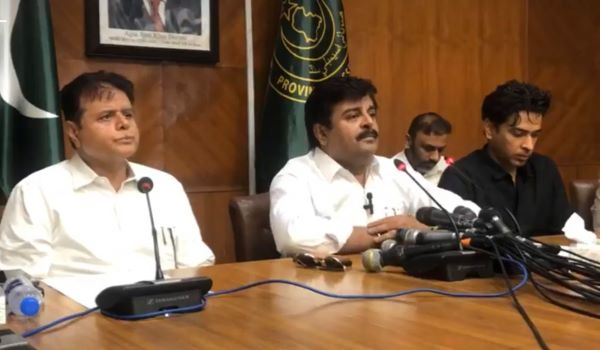
Sardar Shah claims that the number of out-of-school children in Sindh is much lower than in other provinces
Karachi, Sindh
Sindh’s Education and Culture Minister, Syed Sardar Ali Shah said on Saturday that after the approval of the Teaching License Policy, teachers will have to pass an exam and obtain a license, similar to doctors and engineers.
This will benefit the entire education system, not just teachers and students, he said during a press conference in Committee Room-1 of the Sindh Assembly.
Secretary School Education Sindh, Ghulam Akbar Laghari, social figure Shahzad Rai from Zindagi Trust, Dean Farid Panjwani from Agha Khan University’s Institute of Education Development, and others were also present.
Minister said that hiring of over 60,000 teachers on merit in Sindh was a significant challenge, which was successfully accomplished due to the serious efforts of the Pakistan Peoples Party’s provincial government.
He said that Sindh Teachers Education Development Authority (STEDA), Agha Khan, and NGO Durbeen, are working together for teacher training and licensing.
He informed that after the recruitments, more than 5000 closed schools have been reopened, and over 400000 new children have enrolled in government schools.
He claimed that currently the number of out-of-school children in Sindh is much lower than in other provinces.
Education Minister stated that the Sindh Teaching Board is not only being run by the government but also by social and private representatives. The board is empowered to make its own decisions to enhance the quality of teachers and maintain merit. He further stated that the Licensing Policy will be made applicable in both government and private sectors. (PR)
_______________